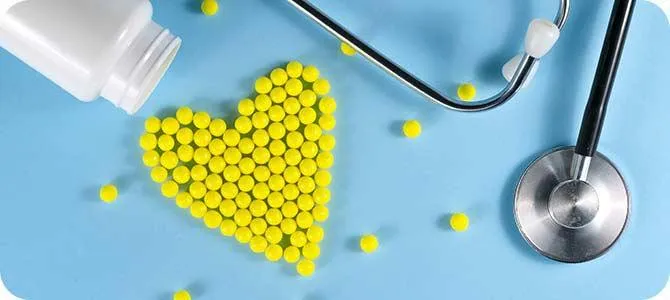PELLET THERAPY FAQ

1. Is Fasting Required Before an Insertion?
No fasting is required in advance of the insertion.
2. What Blood Test Is Required Before the Insertion?
Certified BioTE providers require extensive lab work while considering a patient’s candidacy for Bioidentical Hormone Replacement Therapy (BHRT) using pellets. A provider will discuss the results with a patient before moving forward with pellet therapy.
3. What Happens During the In-Office Insertion?
During the in-office visit, the insertion site of the patient is numbed. The most common site of insertion is the upper buttocks. A small incision is then made for pellet insertion. Once the pellet is inserted, the insertion site is covered with a small bandage
4. What Happens During the Week Following the Insertion?
After pellet insertion, it’s best to eliminate lower body exercise. Walking should be fine, but extraneous activity is not recommended. Swimming, hot tubs, and bathtubs are to be avoided; however, showers are permitted. After removal of the bandage, normal activity may resume.
5. How Often Is Pellet Insertion Necessary?
As each patient’s symptoms are unique, so is each patient’s path to hormone optimization. Each pellet therapy is customized to fit a patient’s specific needs.
6. What Happens to Pellets After Insertion?
Since pellets are bioidentical and contain hormones like those produced by the body, they are completely dissolved and absorbed, leaving nothing behind.
7. What Is Estrogen?
Estrogen is a hormone that possesses many functions and occurs in the bodies of both men and women. In women, estrogen is most commonly associated with reproduction—it prompts the menstrual cycle and develops the female body’s secondary sex characteristics. However, in both sexes, estrogen is responsible for many facets of bone health, cholesterol metabolism, and the thickness and collagen content of skin.
8. How Do Estrogen Levels Change as We Age?
In women, estrogen levels are reduced as they get older. Hormone levels in women drop most dramatically during perimenopause (immediately before menopause) and during menopause. In fact, after male andropause, many men may have higher estrogen levels. If a woman has had a radical hysterectomy, involving the removal of both ovaries, her estrogen levels may drop significantly, as the ovaries primary responsibility is estrogen production. Although adrenal glands produce some estrogen, as does fat tissue, this is often not enough to effectively balance and maintain women’s hormone levels.
9. What Is BHRT?
Bioidentical hormone replacement therapy, or BHRT, is a form of hormone therapy that has existed in the U.S. States for many decades and uses hormones that are structurally similar to those found within the human body.
10. What Health Concerns May Estrogen Pellets Be Able to Relieve?
Estrogen pellets are primarily used to combat the effects of menopause. Studies have shown, estrogen may also be able to relieve chronically low mood, poor bone density, and improve heart health.
11. What Is Pellet Therapy?
BioTE® provides training on bioidentical hormone replacement therapy in the form of subcutaneous pellets. We offer training on two kinds of pellets: both estradiol and testosterone pellets. These pellets are inserted into the upper buttocks area during an in-office visit, after testing has been done to determine the exact quantity of the hormone the patient requires. Every dose is custom created based on a consultation and extensive lab work to ensure that a patient receives the exact concentration of hormones needed.
Bioidentical hormones, such as the ones used in training by BioTE®, work with the chemistry of the body because they replicate the molecular structure of the hormones that normally occur within the body.
12. How Long Do Pellets Last?
Pellets last three to six months depending on gender, weight, absorption rates, and the amount of deficiency or surplus of hormones present within the patient at the time of insertion. Pellets are reinserted between two to four times per year to help keep hormones optimized and balanced.
13. What Is the Advantage of Bioidentical Hormones?
Bioidentical hormones, such as the ones used in training by BioTE® work with the chemistry of the body because they closely replicate the molecular structure of the hormones that normally occur within the body.
14. Is There More Than One Type of Pellet?
Yes, there are two major pellet therapy types: estrogen pellets and testosterone pellets.
15. What Are Estrogen Pellets?
Estrogen pellets are small cylinders that are custom compounded and composed of estradiol, a form of estrogen. Estrogen pellets may relieve emotional, reproductive, and non-reproductive symptoms. The most common administration for estrogen pellets is to address the uncomfortable symptoms of aging in women.
16. What Is Testosterone?
Testosterone is a hormone normally found in both men and women that is responsible for many critical body processes. Testosterone is produced in the testes, as well as ovaries, and deficiencies in it occur as the body ages.
17. What Are Testosterone Pellets?
Testosterone pellets are composed of powdered testosterone fused into a pellet using stearic acid as a binding agent. The compounding pharmacies used by certified BioTE providers provide high-quality pellets, with ingredients that are meticulously tested. This testing process gives pharmacists, BioTE providers, and patients confidence in the quality of pellets administered.
18. What Health Concerns May Testosterone Pellets Relieve?
Testosterone has been shown to relieve a wide range of reproductive, emotional, and nonreproductive conditions. Some of these include low energy, sexual dysfunction, mood swings, irritability, and many others.
19. Who Is BioTE®?
BioTE® provides training on bioidentical hormone replacement therapy in the form of subcutaneous pellets. With over 1.7 million insertions performed in the company’s history, we have seen many lives changed with optimized hormones.
Contact Details
2595 S 17th St C, Wilmington, NC 28401
Call: (910) 477-3945
Visit Us: Mon.-Thurs: 7am-3pm
Fri.-Sun.: Closed

